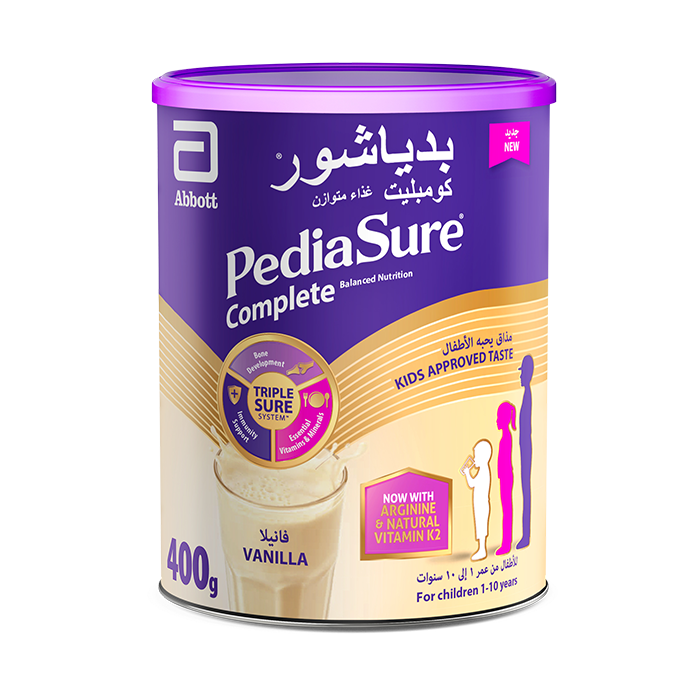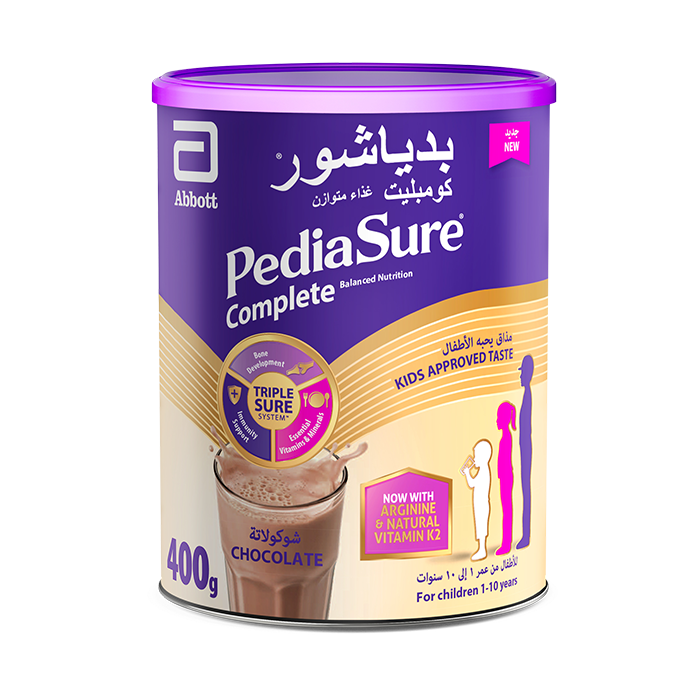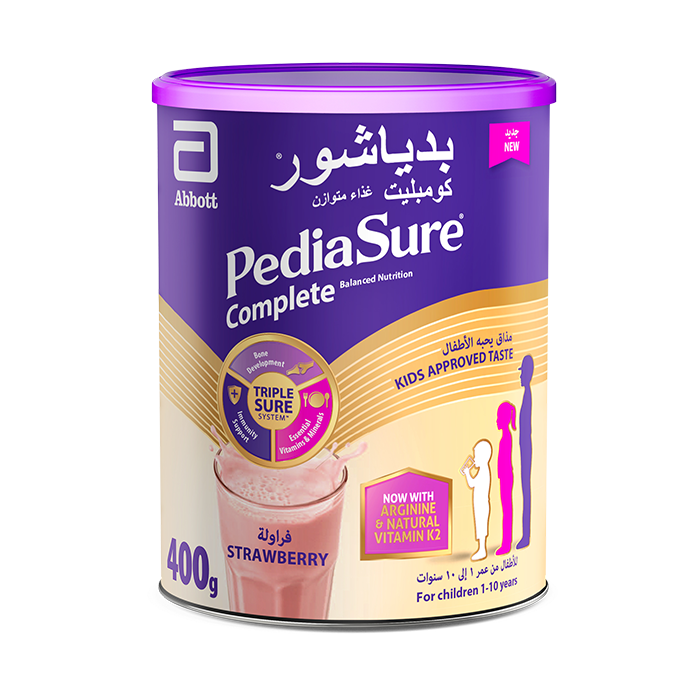Pediasure® Complete
- Main Image
-

- Subtitle
- Child nutritional supplement – From 1 to 10 years old
- Title
- PediaSure® Complete Vanilla
- Detail Page Path
Explains the importance of regularly monitoring a child's growth to ensure they are developing healthily and identifies potential concerns early.
Discusses various methods and tools parents can use to monitor growth, including growth charts and pediatric assessments.
Provides guidance on how to interpret the data from growth monitoring, understanding what is normal and when to seek advice.
Growth is an important indicator of your child’s overall health & nutritional status. Accurate measurement and regular monitoring of your child’s height & weight for age can help detect growth issues.
Poor growth may be an indication of medical conditions or nutritional deficiencies of which can have lasting impact on his or her physical and mental development. It is crucial that we identify any growth issues and address inadequacies in his/her nutritional intake early to reduce negative impact on his/her growth and development. Start tracking your child’s growth now!
Height gain is a sensitive indicator of nutrition intake adequacy for a child. A healthy gain in height:
Indicates that the body has adequate nutrients to successfully produce lean & skeletal tissue
Shows that body’s hormonal and metabolic functions are working efficiently, supporting the continuous growth of the brain and the skeletal system.
Children of tall parents tend to be taller than children of the same age whose parents are short. But a child who is short and has very tall parents may not be achieving genetically expected height. You can determine whether your child is growing appropriately by using the mid-parental height calculation.
For boys: add 13 cm to the mother’s height, and average this with the father’s height
For girls: subtract 13 cm from the father’s height and average this with the mother’s height
On the growth chart, follow your child’s current height-for-age percentile to obtain projected height at 18 years of age
If the difference between the calculated mid-parental height and the projected height at 18 years is ≤ 8.5 cm, your child’s current height is appropriate for his genetic potential.
Check out the growth calculator too to discover your child’s potential height at 18 years old and know if your child is on track! Also, monitor your child’s weight and height by tracking growth percentiles regularly with this tool, to ensure you are supporting your child’s nutrition to achieve growth potential.
Until the end of adolescence, a child undergoes rapid physical and cognitive development and this needs to be supported by adequate nutritional intake. Ensuring that your child has a complete, balanced diet then becomes crucial.
Oral Nutrition Supplements (ONS) may help plug nutritional gaps in children with suboptimal growth or poor dietary habits like picky eating. An ideal oral nutrition supplement (ONS) should be high in energy and nutrient-dense to plug nutrition gaps and support catch-up growth*. ONS is a convenient nutrition solution to help deliver complete, balanced nutrition and a range of essential micronutrients to your child’s diet without compromising on taste. It is also a more advantageous option compared to conventional sweetened beverages which tend to be less nutrient dense.




If you’re dealing with a picky eater, there’s nothing to worry about. It’s more common than you think. Check our content to learn how you can support your child’s nutrition.

Many parents are concerned about the normal weight and height of their children. They compare them with the other children of the same age to make sure that they are growing normally.

You already know that a growing kid needs a balanced diet full of nutrients, including vitamins and minerals. But what are some of the key nutrients children need.
ANI-IRQ-PN-2024-4352
You are about to exit for another Abbott country or region specific website.
Please be aware that the website you have requested is intended for the residents of a particular country or region, as noted on that site. As a result, the site may contain information on pharmaceuticals, medical devices and other products or uses of those products that are not approved in other countries or regions.
The website you have requested also may not be optimized for your specific screen size.
Do you wish to continue and exit this website?